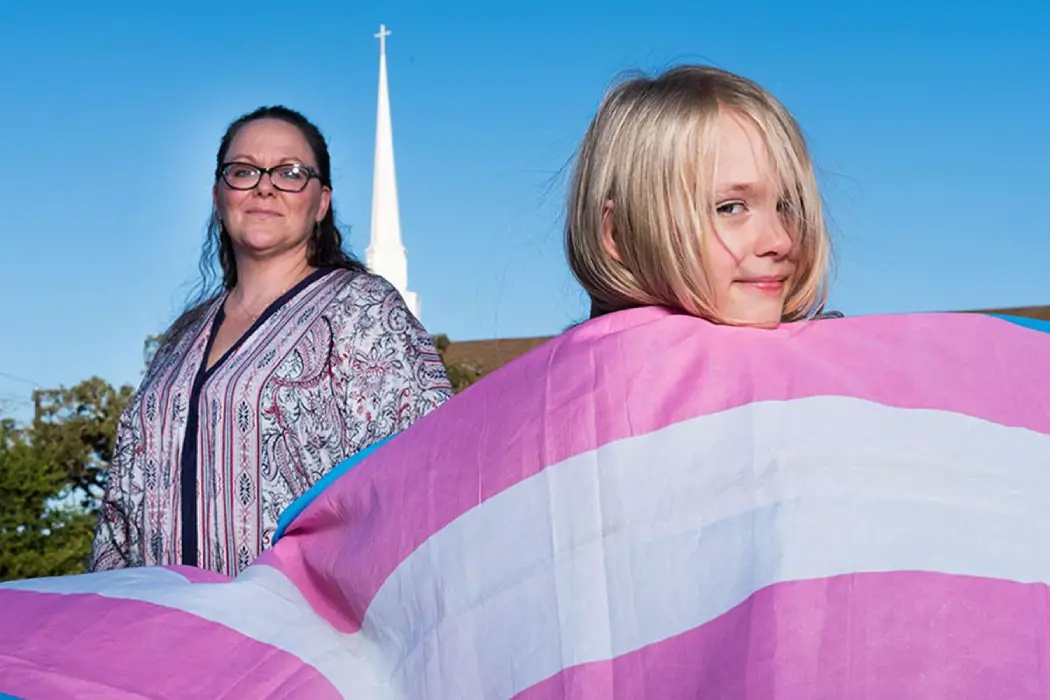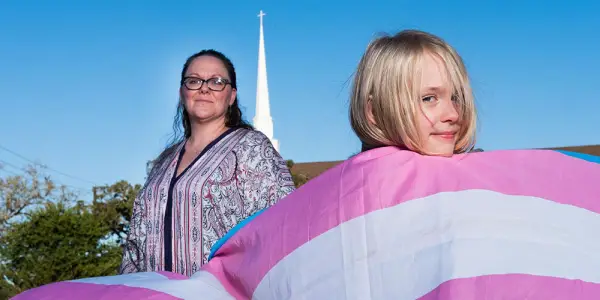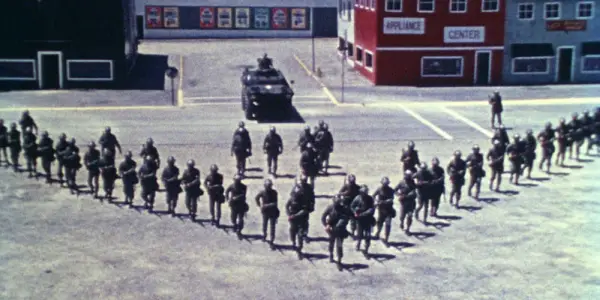Seattle International Film Festival 2022 Report #3: MAMA BEARS & RIOTSVILLE, U.S.A.

Bailey Jo is a visual journalist currently living near Seattle.…
In this final report from the 48th Annual Seattle International Film Festival, documentaries are the focus. Specifically, documentaries centering on American issues that have plagued specific marginalized folks, even now. One documentary – Mama Bears, based on the name of a Facebook group – focuses on mothers of LGBTQ+ children, fighting for their rights. The other – Riotsville, U.S.A. – takes a look at just how far and deep the trenches of police militarization and systemic racism go. While Mama Bears was available on streaming and in the theater, Riotsville, U.S.A. was an in-theater exclusive.
Mama Bears (Daresha Kyi)
With entire states becoming more and more hostile to LGBTQ+ youth, a film like Daresha Kyi‘s Mama Bears is a sweet elixir and a shining light of hope that above all else, love will persevere. Love is a central theme of this documentary – love for God, love for your child, and love for yourself. Religion is often cited as a reason for homophobia, transphobia, and anti-LGBTQ+ attitudes, and this film offers an alternative as three religious women show that having faith and supporting LGBTQ+ rights aren’t mutually exclusive.
There’s Kimberly Shappley, a Texas mother who became ostracized from her evangelical, conservative community when she accepted her young trans daughter Kai; Sara Cunningham, an Oklahoma mother who founded the Free Mom Hugs organization after her son Parker came out as gay; and Tenita Lewis Artry, a California mother in the early stages of accepting her daughter Tammi Terrell Morris, a lesbian who thought she had to choose between her sexuality and her faith.

Well-edited and effective in bringing out the emotions, Mama Bears shows the highly-religious background of each woman, revealing how devoted they were to their conservative ideals and how they reacted to their respective child’s coming out. There are many tear-jerking moments throughout the documentary, like Kimberly talking about how Kai, at the age of four, would pray to God to let her die so that she wouldn’t continue being forced to live as a boy, or Tammi being told that her nephew’s death was punishment for her being gay.
While the doc highlights the struggles of being LGBTQ+ in evangelical America, the film’s intended is really the mothers who risk everything to stand by their children. While Kimberly tells about her enormous family, photos with blurred-out pictures of said family reveal that she stood alone in her fight for her daughter. Sara speaks about offering to be a stand-in parent for same-sex couples whose real parents refused to attend their weddings. It’s a really beautiful, hopeful film that shows that, despite the best efforts of anti-LGBTQ+ groups and legislature, there are people and families out there that are willing to fight for them.
Riotsville, U.S.A. (Sierra Pettengill)
Composed of 100% archival government and broadcast television footage, Sierra Pettengill‘s Riotsville, U.S.A. is a bone-chilling and confirming documentary that reveals what we’ve known all along – when given a choice to make the lives of Black Americans better, the government will just throw money at the police. After President Johnson created the Kerner Commission in 1967 in order to understand what caused several recent “riots” throughout the country, the Commission found that it was undoubtedly systemic racism and that some good solutions would be government programs that would provide things like jobs and housing, along with a suggestion to find a way to control future protests, which essentially translates to police militarization.
It would have been a tremendous amount of money – on par with what the government was spending on the Vietnam War at the time – to create racial equality in America at the time. In a move that should not be surprising to anyone, the sole outcome of the Commission report was focusing on police actions, which resulted in these makeshift towns – called Riotsville – that were used for police training in the event of riots, snipers, and protests.

Expertly intercut with footage from these training events, where military men and women wore civilian clothes and pretended to be rioters and protesters and police chiefs from across the country watched the demonstrations from covered bleachers, taking notes and taking them back to their respective cities. Most notably, one police chief talks about how he’ll implement what he’s seen in Riotsville back in Chicago, a point that is picked up on later in the documentary when the 1968 Democratic National Convention rears its head.
The documentary is a triumph, with the perfect amount of tension, the most damning of evidence of government-funded white supremacy, and flawless execution of narrative structure. The only weak points of Riotsville, U.S.A are the intermittent pieces of narration. While Charlene Modeste does a fine job with the words she’s given, a lot of it ends up being word salad and forgettable. While it’s clear that the doc has an objective, it’s at its strongest when the footage speaks for itself.
Both films were featured at the 48th Seattle International Film Festival on April 18, 2022.
Does content like this matter to you?
Become a Member and support film journalism. Unlock access to all of Film Inquiry`s great articles. Join a community of like-minded readers who are passionate about cinema - get access to our private members Network, give back to independent filmmakers, and more.
Bailey Jo is a visual journalist currently living near Seattle. Along with obsessively watching movies, she enjoys creating art, playing guitar, and trying to get some sleep.













